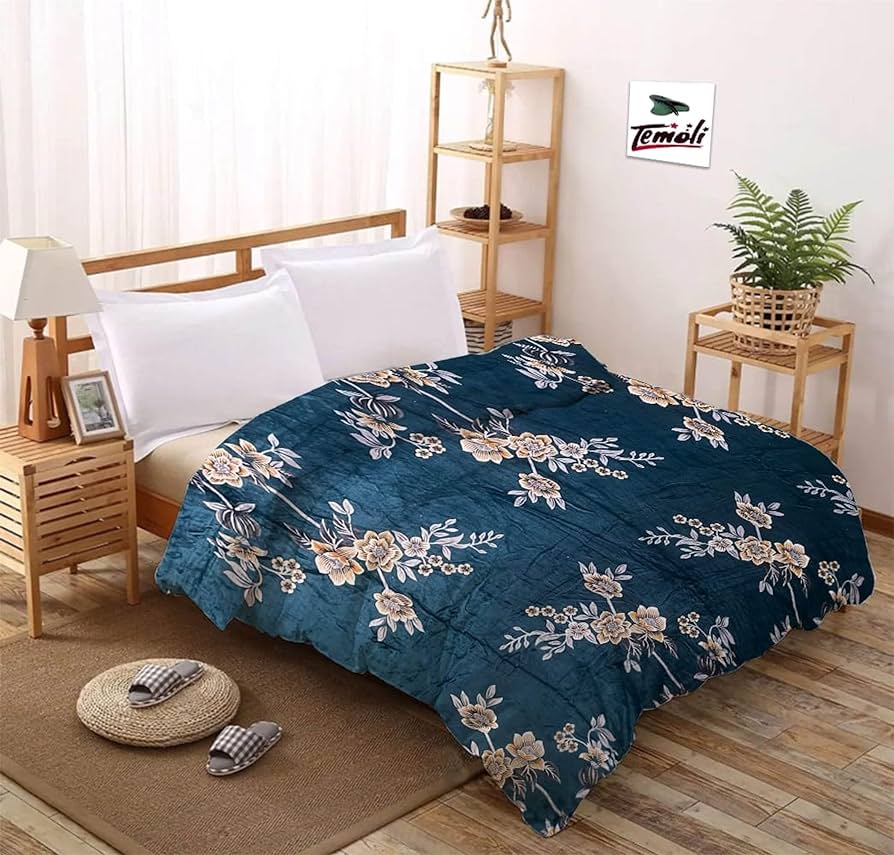Selecting the right duvet cover is crucial for creating a comfortable and inviting bedroom. In the UK, where quality bedding is highly valued, there are numerous options to consider. From materials and thread counts to design and maintenance, this comprehensive guide will walk you through the key factors to keep in mind when choosing the best duvet covers UK for your home.
- Material Matters
The first and perhaps most important consideration when choosing a duvet cover is the material. Different fabrics offer distinct benefits in terms of comfort, durability, and maintenance. Here are some popular options:
Cotton:
Cotton is a classic and widely loved material for duvet covers. It is breathable, soft, and durable. Look for high-quality cotton options like Egyptian or Pima cotton for an extra luxurious feel.
Linen:
Linen has gained popularity for its breathability and natural texture. It tends to get softer with each wash, offering a relaxed and lived-in feel. Linen duvet covers are particularly suitable for warm climates.
Silk:
For a touch of luxury, silk duvet covers are an excellent choice. They are smooth, hypoallergenic, and known for regulating body temperature. Keep in mind that silk requires delicate care.
Polyester Blends:
Polyester blends are a budget-friendly option that offers durability and easy maintenance. While not as breathable as natural fibers, they are resistant to wrinkles and can be a good choice for those with allergies.
- Thread Count Demystified
Thread count is a term you’ll often encounter when shopping for bedding. It refers to the number of threads woven into a square inch of fabric. Many assume that a higher thread count automatically means better quality bedding, but that’s not always the case.
Sweet Spot:
While a thread count between 300 and 500 is generally considered good for cotton duvet covers, the quality of the fibers matters just as much. Look for long-staple cotton for a smoother and more durable fabric.
Thread Count vs. Quality:
A very high thread count doesn’t always translate to better quality. In fact, some manufacturers may use multi-ply threads to artificially inflate thread counts. Focus on the overall quality of the fabric rather than getting fixated on a specific thread count.
Weave Wonders
The weave of the fabric contributes significantly to the feel and durability of a duvet cover. Common weaves include percale, sateen, and twill.
Percale:
Percale is a plain weave with a crisp and cool feel. It’s breathable and tends to have a matte finish. If you prefer a classic, hotel-like experience, percale might be your best bet.
Sateen:
Sateen is a weave that produces a smooth and silky surface. It has a subtle sheen and is often considered more luxurious than percale. Keep in mind that sateen can be warmer than percale due to its denser weave.
Twill:
Twill weaves create a diagonal pattern and a slightly heavier fabric. While twill duvet covers may be more durable, they can also be warmer. Consider twill for cooler seasons or if you enjoy a weightier feel.
- Design and Aesthetic Appeal
The design and color of your duvet cover can significantly impact the overall aesthetic of your bedroom. Consider the following factors:
Personal Style:
Choose a design that aligns with your personal style and complements your bedroom decor. Whether you prefer solid colors, patterns, or textures, there are endless options to suit your taste.
Versatility:
If you enjoy changing your bedroom decor frequently, opt for a versatile duvet cover that can easily complement different color schemes and accessories.
Seasonal Changes:
Consider having different duvet covers for different seasons. Lighter, brighter colors may be preferable in the summer, while richer, darker tones can create a cozy atmosphere in the winter.
- Easy Care and Maintenance
The practicality of a duvet cover extends to its care and maintenance. Choose a duvet cover that aligns with your lifestyle and willingness to invest time in upkeep.
Machine Washable:
Check if the duvet cover is machine washable. Most modern duvet covers are, but always follow the care instructions provided by the manufacturer to ensure longevity.
Wrinkle-Resistant:
If you prefer a crisp, wrinkle-free look, consider duvet covers labeled as wrinkle-resistant. This feature can be especially beneficial if you have a busy schedule and limited time for ironing.
Durability:
Look for durable stitching and high-quality zippers or buttons. A well-constructed duvet cover will withstand regular washing and maintain its integrity over time.
Conclusion
Choosing the best duvet cover in the UK involves a thoughtful consideration of material, thread count, weave, design, and maintenance. By understanding these key factors, you can make an informed decision that aligns with your preferences for quality bedding. Invest in a duvet cover that not only enhances the comfort of your sleep but also adds a touch of style to your bedroom, creating a welcoming and cozy haven for relaxation.
